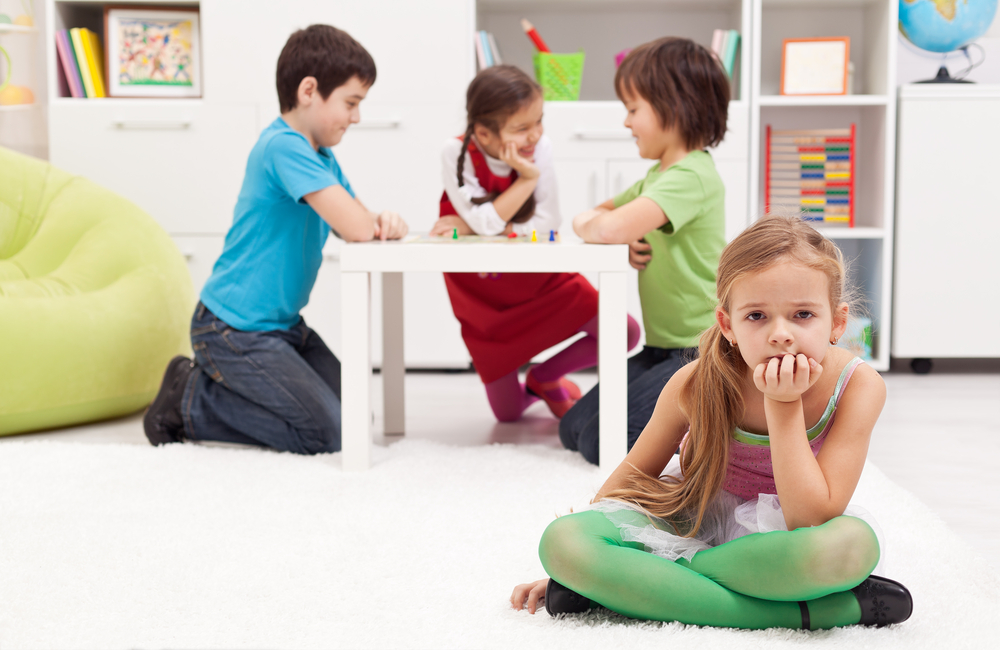As a parent, you want your kids to live happy, healthy, and supported lives. That includes developing deep connections with friends at school and in their community. But if your child isn’t connecting, you may wonder why your child is having trouble making friends, and what you can do about it.
How Will You Know if Your Child Feels Lonely?
Kids don’t always tell their parents if they are having trouble making or keeping friends. They may be embarrassed or not understand what is happening. They may think it is their fault, or that something is wrong with them. Other times, parents or other adults may not see the friendships developed at school and online because they are different than those adults expect.
As a parent, take note of whether your children are getting invited to play dates, sleepovers, or group events – digital or otherwise. If they are always at home, they may be introverted and opting out of participating, or they may be connecting with friends online. However, they may also be feeling excluded and lonely. Talk to your kid about their feelings, giving them permission to be sad or lonely or mad, if that is what they are feeling.
You aren’t alone in this. If you think your child is having trouble making friends you can ask their teachers, coaches, and religious leaders if they share your concerns.
Why Kids Have Trouble Making Friends
Relationship-building is a skill that children develop over time. Some kids are better at making and keeping friends than others. Sometimes a child may simply not have connected with anyone yet. However, there are also some behaviors that can make it harder to build friendships:
Being Shy or Anxious
Some kids have trouble meeting new people. Social anxiety can turn a playdate into a potential threat – not the kind of place anyone would want to relax and open up. Fear of unknown others can make connecting even harder.
Misunderstanding Social Rules
Other children – especially those on the Autism spectrum or the children of immigrants – may misunderstand subtle social cues in their school environment. Differences in cultural behavior at home can create awkward moments at school and make it harder to make friends.
Acting Out or Being Aggressive
Many children wrestle with impulse control. They may act out or become aggressive or even mean. This kind of behavior can push other children away and make it harder for them to develop kind and supportive friendships.
Your Choice of Discipline May Be Affecting Your Child’s Relationships
Parents have tremendous influence over their children’s development of social skills. Research studies suggest authoritarian parenting – emphasizing obedience, acting cold, and exerting control through threats, punishment, and shame – is linked to childhood behavior problems, which in turn can interfere with a child’s ability to make friends. Other parents’ psychological control of their children – through guilt trips, shame, and withdrawal of affection – can negatively affect the quality of those friendships.
By adopting a positive parenting style – emphasizing positive interactions and encouraging impulse control – you can help your children develop better relational skills. Your example can help them learn to become kind and sympathetic to others around them. This type of discipline models lower aggression, self-reliance, and can help your kids be better liked by their peers.
What You Can Do to Help Your Child Improve their Relationship Skills
When kids feel safe and supported at home, it can empower them to take risks and build friendships. As a parent, the best thing you can do to help your kid make friends is to focus on your own relationship with your child. If you find your child’s behavior taxing, other children might as well. If your child withdraws from you or seems anxious when you suggest new activities, they may be feeling that same anxiety in social settings. Identify where your child’s relationship skills are lacking and help them develop further in that area.
If your child is feeling lonely or distressed over their lack of friends, psychotherapy may also help. A child therapist can help your child develop their relationship skills with modeling, role-playing, coping strategies, and other techniques. With these tools in their toolbelt, your kids may be better able to overcome any trouble making friends.
David Stanislaw is a psychotherapist with over 30 years of experience. He helps children, teens and adults with relationship-building challenges and other psychiatric issues. Contact David Stanislaw to get help for your child today.


 Breaking the Cycle: Healthy Parenting Tips for PTSD Survivors
Breaking the Cycle: Healthy Parenting Tips for PTSD Survivors How Bereavement Counseling Helps with Loss
How Bereavement Counseling Helps with Loss Long-Distance Relationships and Loneliness
Long-Distance Relationships and Loneliness